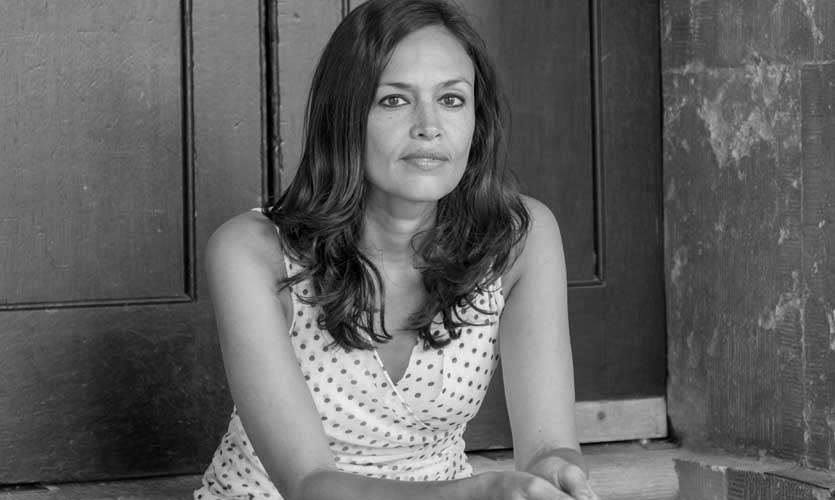Tishani Doshi is a poet, writer and dancer based in India. Doshi’s poetry books have won several awards including the Forward Prize, the Eric Gregory Award and the All-India Poetry
Competition while her debut novel was short listed for the Hindu Best Fiction Award and longlisted for the Orange Prize and the International IMPAC Dublin Literary Award. A passionate and talented dancer, Doshi has been the lead dancer in the Chandralekha Troupe and has toured the world with her dance troupe, and hence, the human body plays an important role in her poetry. She is also a freelance journalist and has written for the Guardian, the National and the Hindu. Her collection of poetry, Dolce Marcescenza or Sweet Decay is a bilingual work, written with her writer husband, Carlo Pizzati.
As a poet, writer and dancer– which one wins?
It’s hardly a competition. I’m usually more involved in one project and so, whatever I’m working on at a particular time is what takes priority, but even if I’m writing poetry, I’m still reading novels, thinking about the novel that I’m working on, and dance is also a part of the continuous dialogue. Poetry came first and so I suppose it remains the central axis. But I don’t see these activities as being separate at all.
Someone once said that ‘poetry is a kind of a dance’. As a poet and a dancer would you agree?
I don’t think I could disagree with any description of poetry as it is different for everyone. Poetry certainly shares elements with dance. In my own work, the concept of time, rhythm, slowness, muscularity – all of this is shared. There’s also a sense of holding time in the body, and memory – I feel as a dancer this is more easily understandable, but harder to describe in poetry – yet, it’s a similar trajectory. And also, vulnerability. It takes a lot to walk onto a dark stage and begin as a dancer. It takes a lot to send a poem into the world.
We really enjoyed your poetry book ‘Girls are coming out of the Woods’. It was raw and bold as it spoke about female bodies and violence against women. Was it difficult to write?
It’s never easy to write about violence, about how violence is perpetuated and whether by writing about this violence we are perpetuating it further. I have a poem “Everyone Loves a Dead Girl” that deals explicitly with this difficulty, that even in our shock, our grief, we become the transmitters of a different kind of violence. But I’m interested in how poetry can work as reclamation. How we can return the voice to those who have been silenced. Which is why the title poem, “Girls are coming out of the Woods,” was written as a kind of anthem and battle cry in the face of the overwhelming violence that women all over the world face.
At this day and age, the appreciation for poetry has lessened - what are your thoughts on this?
I’m not sure that this is true. I read about new generation poetry all the time – whether it is performing poets, Insta poets, dub poets…… Poetry has been around for a long time and I don’t think it’s going to go extinct any time soon, but it’s a transforming, morphing genre, and we must ask ourselves what we mean when we say poetry. The gatekeepers have changed, and the world has changed. So, are people buying huge amounts of poetry books? Maybe not. But are people sharing poems on Facebook and Instagram and other social media? Are they going to performances in bars and coffee shops and festivals? Very much so. Long live poetry.
What’s one topic you always wanted to talk about in your poetry or writing but never got around to or was scared to?
I’ve always been able to write about everything I’ve wanted to write about. The question is whether I’ve been able to write about it as best as I hoped. Sometimes you write around something because you don’t have the bandwith to write through it. Sometimes you just have to wait for the right time, to let something sit and gestate long enough, and eventually you will find your way in.
Whose work inspires you?
There’s a pantheon so large and diverse it’s hard to mention just a few names and it changes on a daily basis. Let’s say that central to my artistic experience has been the work of the Indian dancer and feminist Chandralekha, the writing of Virginia Woolf, the voice of Nina Simone, and the melancholy of Rainer Maria Rilke.
Which is more difficult; writing a poem or writing a novel?
Whatever you happen to be working on at that moment is the most difficult and the most wonderful.
The Fairway Galle Literary Festival is set to take place from the 16th to the 20th of January 2019 at the Galle Fort. Box office is now open! Visit https://galleliteraryfestival.com/ for more information.
Read all our GLF content here! You can find some great author interviews.


0 Comments